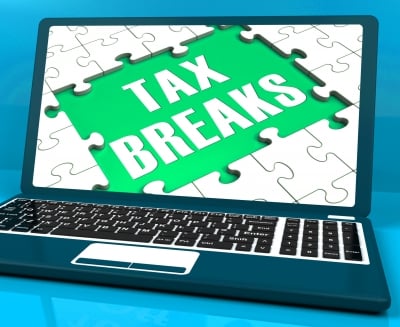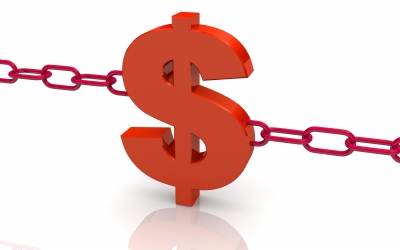Some taxpayers may feel that once they stop earning a regular wage that won't need to file an income tax return. However, there are some tax situations that face older individuals that may still require them to file a federal tax return. The key is understanding the tax filing requirements for retirees so that you can make sure you comply with the tax law.
Do Retirees Have to File Income Tax Returns?
How to Pay Your Self Employment Taxes
Do you own and operate your own business? Did you have income left over after you subtract your operating expenses and tax deductions? If so, you will have to pay self-employment taxes to the IRS along with your federal tax return. While self-employment taxes represent a significant portion of the government's annual revenue, they also serve a beneficial purpose for the entrepreneurs who pay them. What are these taxes? How does the IRS decide how much you owe? How do you go about paying self-employment taxes?
How to Claim a Home Office Deduction
Do you work out of your home? If so, you may be eligible for a home office deduction on your federal income tax return. In past years, the IRS tended to audit taxpayers who claimed a home office deduction at a higher rate than other individuals, but the agency has since reduced the use of this practice. If you qualify for a home office deduction, now is the time to start claiming your rightful tax break! Here is a primer on claiming a home office deduction.
Save on Your Tax Return: Keep More of Your Hard-Earned Money
Looking for ways to cut your overall tax costs this year? If you're wondering how you can save on your tax return, there are several ways you can reduce both your tax preparation costs and your income tax liability. The key to saving on your taxes is doing your homework in advance so that you can take steps to cut your tax bill throughout the year.
Should You Take the Standard Deduction or Itemize?
It's tax time! If you've been dealing with high tax bills for the last few years, you may be wondering how you can possibly reduce your tax liability this time around. Have you thought about changing which deduction you're claiming this year? The IRS gives taxpayers the option to decide whether to claim the standard deduction or to take itemized deductions. So, should you take the standard deduction or itemize? The answer as to which you should claim depends on your tax filing status and your adjusted gross income for that year.
What is the IRS 10-Year Collection Statute on Tax Debt?
The Internal Revenue Service has sweeping power to collect back taxes from individuals who are delinquent on their accounts. The agency has the authority to place liens on property, seize assets, and freeze bank accounts, all in an attempt to collect back payments. However, there are limits to what the IRS can do to collect due taxes. For example, the agency only has a limited amount of time to pursue collections. There is a limit on IRS tax collections and learning about that timeframe can help you decide how to approach making payments on your account.
How to Pay Off Your Back Income Taxes
If there are errors on your federal income taxes, you may have adopted the "wait it out" approach. It's true that the Internal Revenue Service has a maximum of 10 years to collect on your back taxes, so if you're patient (and fearless) enough, you might be able to outlast the agency's power to collect. In the meantime, though, the IRS may have taken drastic measures that could negatively affect your financial livelihood for years. Instead, why not learn about a few ways to pay off your back income taxes?
What are Franchise Taxes?
If you're not involved with a small business, you may never have heard of franchise taxes. However, these taxes are a vital part of the revenue streams of many U.S. states. The value of these taxes may be cold comfort for the business owners who are stuck with the tabs, though. But if you've been hit by the price of franchise taxes, it may be helpful to remember what these taxes are and how they benefit the state economy.
How Can You Remove an IRS Bank Levy?
An IRS bank levy is the worst nightmare of many U.S. taxpayers. This action gives the IRS unprecedented access to your personal bank account, putting your very financial security at risk. Even worse, once the levy is imposed, it can be extremely difficult to get it removed. Despite these challenges, though, it is possible to remove an IRS bank levy.
How to Settle Back Income Taxes
If you're in debt to the Internal Revenue Service, the worry of owing back taxes may be eating away at your peace of mind. Taxpayers who owe large sums of money to the IRS have to concern themselves with the possibility of tax liens, tax levies, and potential legal action. Instead of dealing with the stress of being in debt to the IRS, it's much better to find ways you can settle your back income taxes. Doing so quickly will help you settle your account and sleep better at night.
SUBSCRIBE VIA EMAIL
POSTS BY TOPIC
- Tax Tips and Help (285)
- IRS Collections (121)
- IRS Audit (72)
- Tax Credits and Deductions (70)
- Tax Resolution (62)
- Business Taxes (54)
- Back Taxes (50)
- Wage Garnishment (22)
- Tax Levies (19)
- IRS Payment Plans (15)
- Tax Liens (14)
- Offer in Compromise (9)
- Unfiled Tax Returns (9)
- IRS Tax Attorneys (7)
- Asset Seizure (6)
- Tax Evasion (6)
- Criminal Tax Defense (4)
- Innocent Spouse Relief (4)
- Alimony (1)











